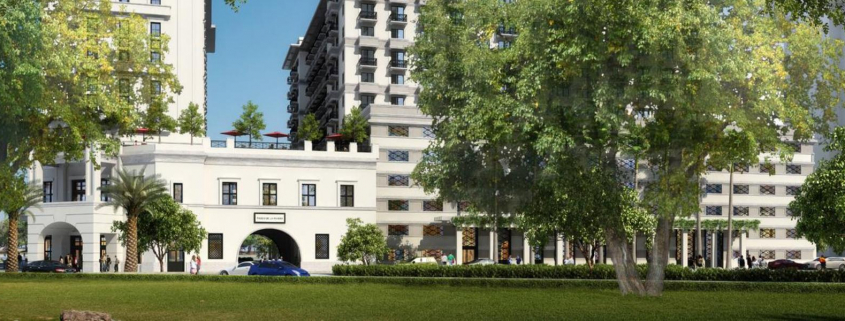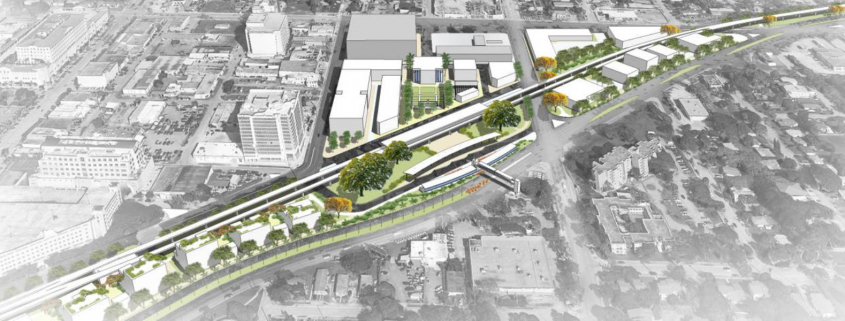Emilio Palomo (the past chair of the Master Brokers Forum, an elite network of the top real estate professionals in Miami, and the owner/broker of Riteway Properties III) recently went to a party for the opening of a Miami Beach hotel.
He was not familiar with this particular hotel or the people behind it, and attended on the invitation of a colleague. After a few minutes, it became clear to him that most of the guests were from Argentina (or of Argentine descent), and he was not surprised to learn that the owners are themselves native Argentines who have been — somewhat quietly — buying and upgrading Miami Beach hotels for many years.
Emilio worked with buyers and sellers from around the world over the course of his 47-plus years in Miami real estate. He feels fortunate to live in a city that draws so much global interest, with buyers coming from Europe, Asia, Latin America, Canada, and (of course) the U.S. Many find our real estate prices to still be reasonably low compared to their home nations.
Some foreign buyers come here because of political instability and lack of security in their countries, others because of our weather, beaches and everything else Miami has to offer. Whatever the reason, Miami has become one of the most desired international destinations in today’s market for a permanent or second (or third!) home.
And while buyers from Russia, Brazil, Colombia and Venezuela have drawn the biggest headlines for their respective impacts, he believes that Miami’s Argentines have not received nearly enough attention for their significant contribution to the economy and real estate market.
Some of this may be due to the nature of Argentines themselves, who in Emilio‘s opinion and experience tend to be quite modest and discreet. Thanks to referrals from friends in the banking community, over the years he has built a solid base of Argentine clients, and become friendly with many of them. (His Cuban-American family has become close with one particular group for whom he sold and managed units, and recently joined them to make some amazing wine in Mendoza, Argentina.)
But it would seem that the days of Argentines flying under Miami’s “real estate radar” are in the past. Some of the city’s most visible and exciting new projects are being created by developers with deep roots in Argentina, including:
- Mid-Miami Beach’s acclaimed Faena District, a six-block project that features luxury hotels, bars, condominiums, a cultural center and a retail complex, from the visionary mind of Argentine developer/artist Alan Faena.
- The Aston Martin Residences, the car maker’s first branded condominium project, which recently broke ground. The 66-story building located at the mouth of the Miami River is being developed by G&G Business Developments, a Miami-based firm owned by Argentine supermarket magnate German Coto and his mother Gloria.
- The Oceana-branded condominiums in Key Biscayne and Bal Harbour, created by Buenos Aires native (and international art collector) Eduardo Costantini.
In addition to these high-profile projects, observers may have noticed a quiet explosion of Argentine restaurants and other businesses in Miami over the past few years, reflecting the growing population of residents and visitors. From what Emilio has noticed, many of the wealthiest Argentines make their homes in Key Biscayne, but there are also many to be found in Aventura, Miami Beach, Brickell, Downtown, Midtown and Edgewater.
Unfortunately, not all news involving Argentine interest in Miami real estate have been positive.
Last month, The Miami Herald reported that former president Cristina Fernández de Kirchner was accused by the nation’s top anti-corruption official of secretly owning more than 60 Miami properties bought with “dirty money.”
While this item is concerning, Emilio believes that Argentina’s recent change in government, and the stability being demonstrated by its new reform-minded leadership, will put the country on a path toward sustained economic growth. This would obviously allow even more Argentine investment in Miami — the “clean” kind we very much prefer.
Emilio is looking forward to many more years of welcoming Argentines and others who continue to make Miami a dynamic, evolving, and truly international city.
Source: Miami Herald






